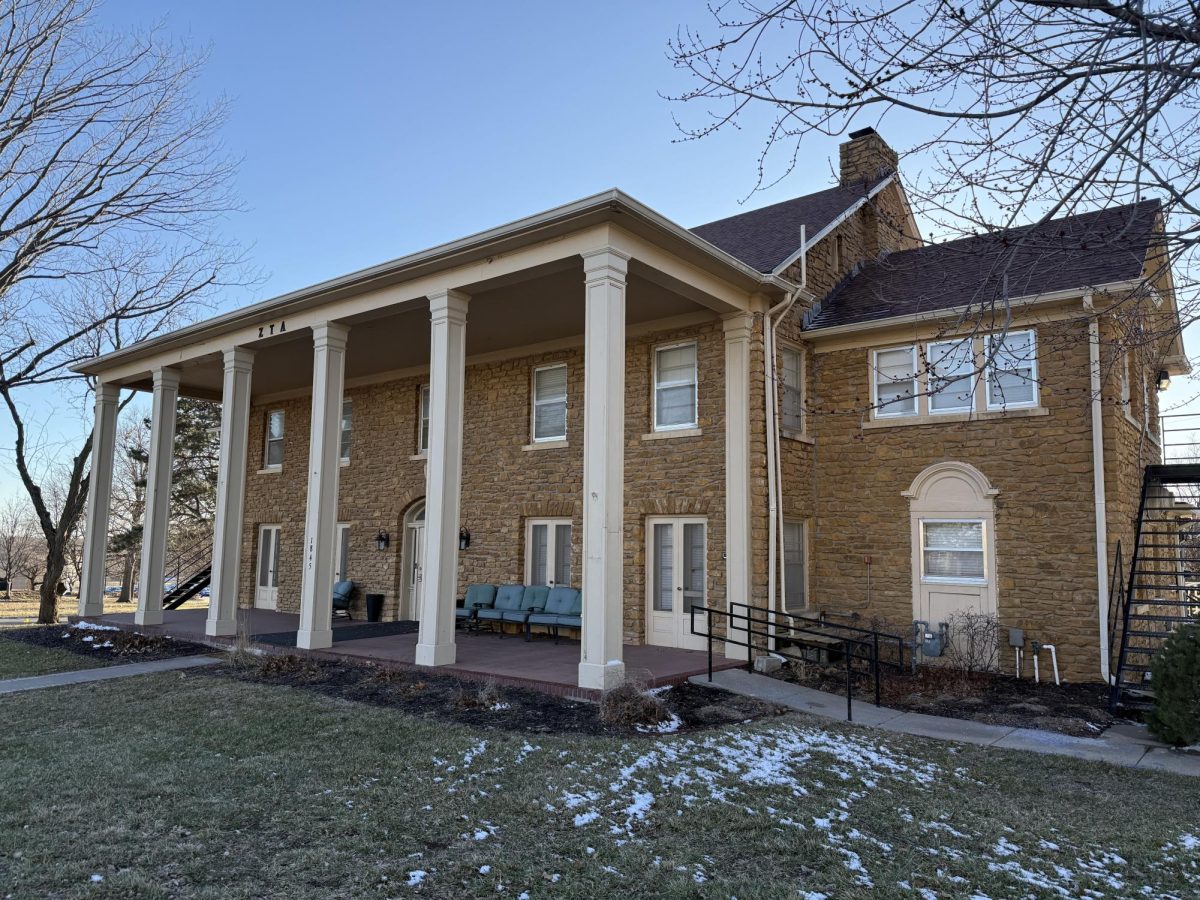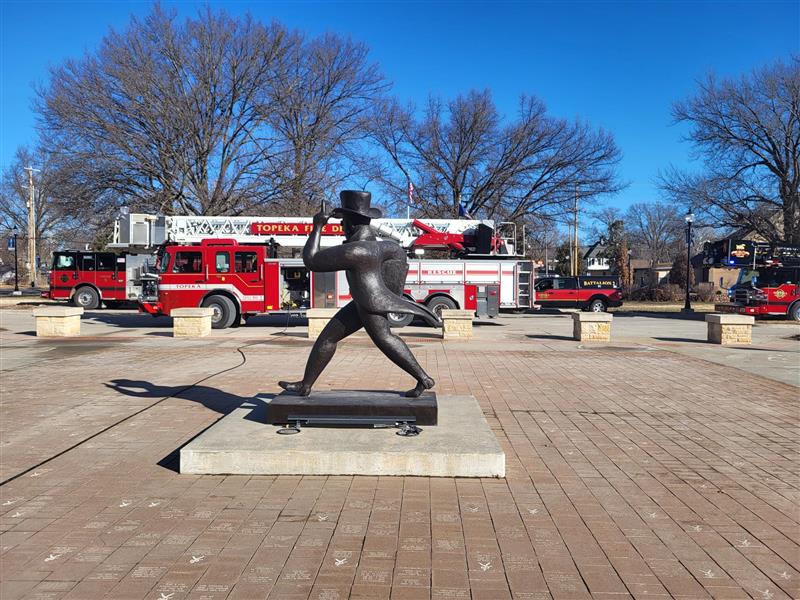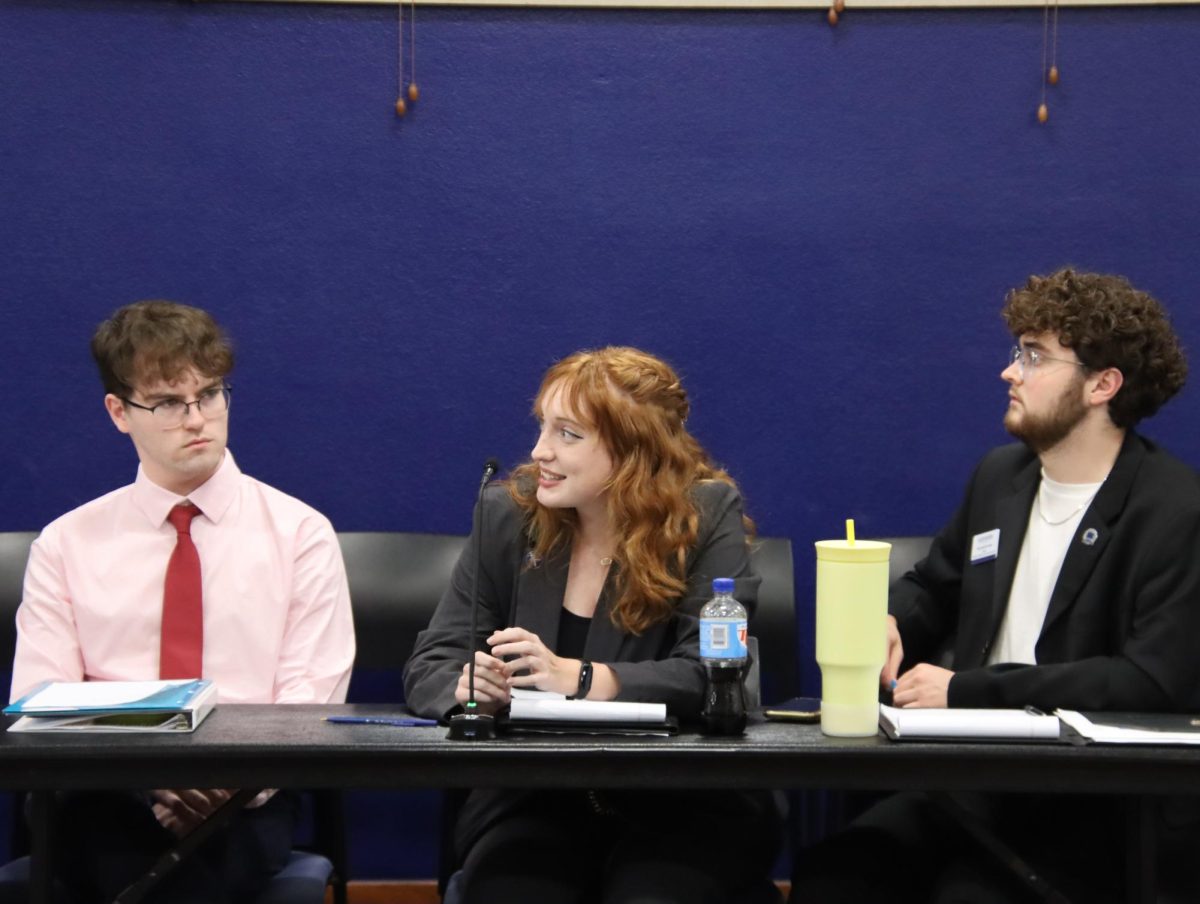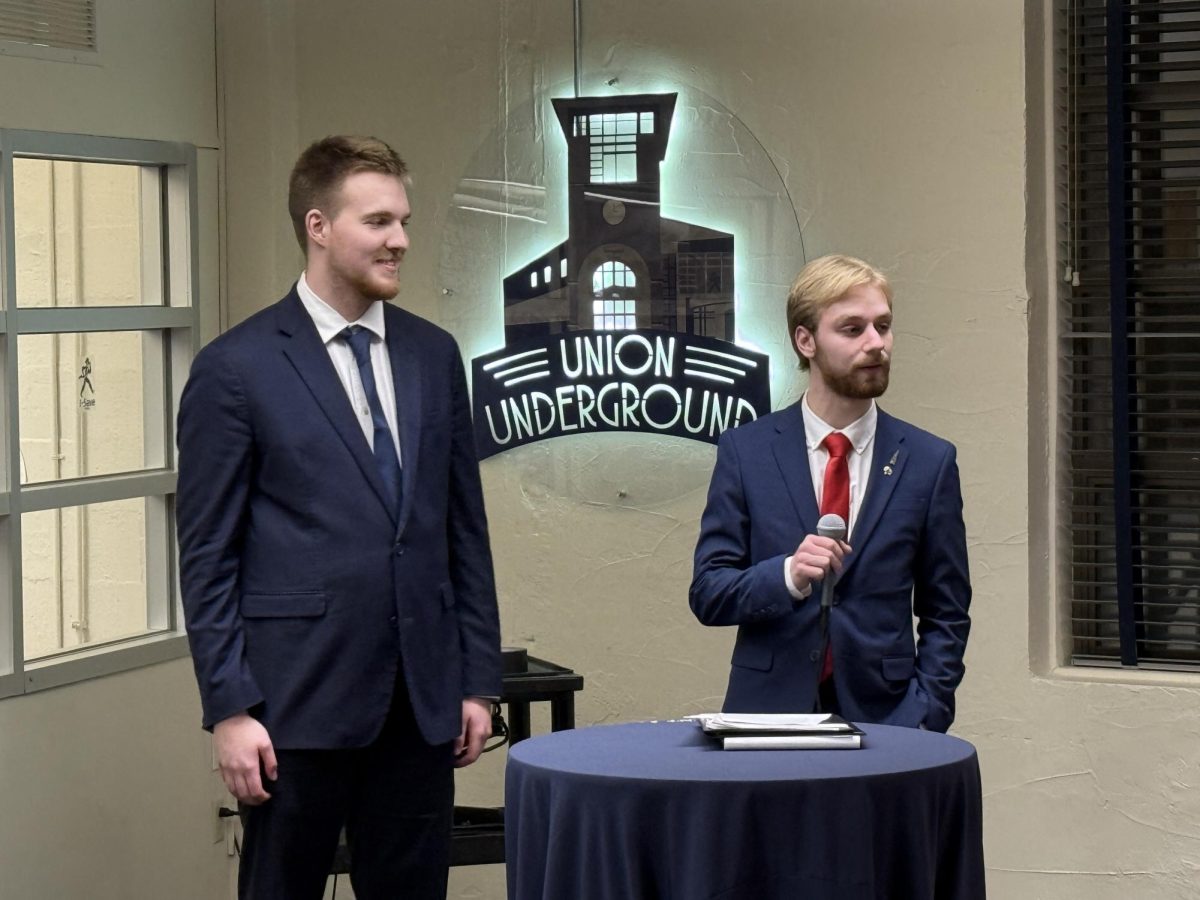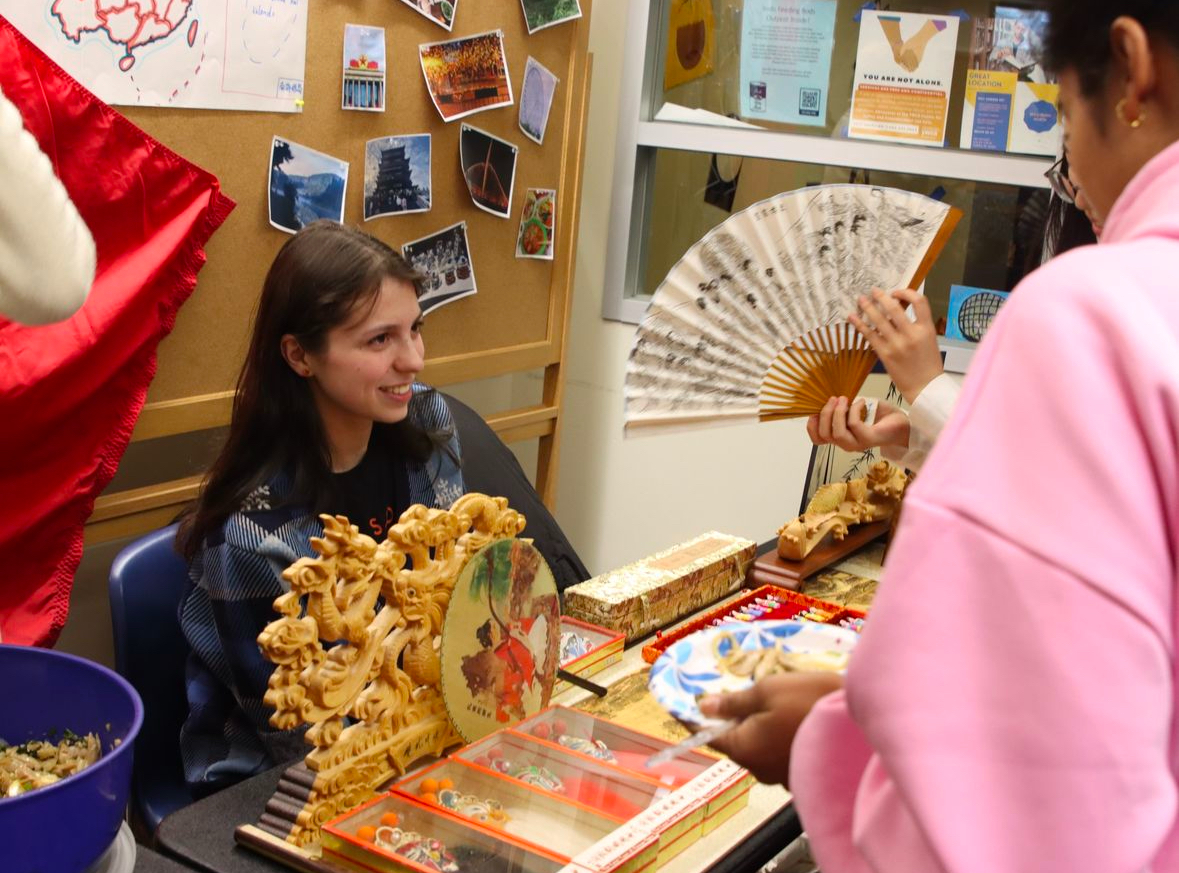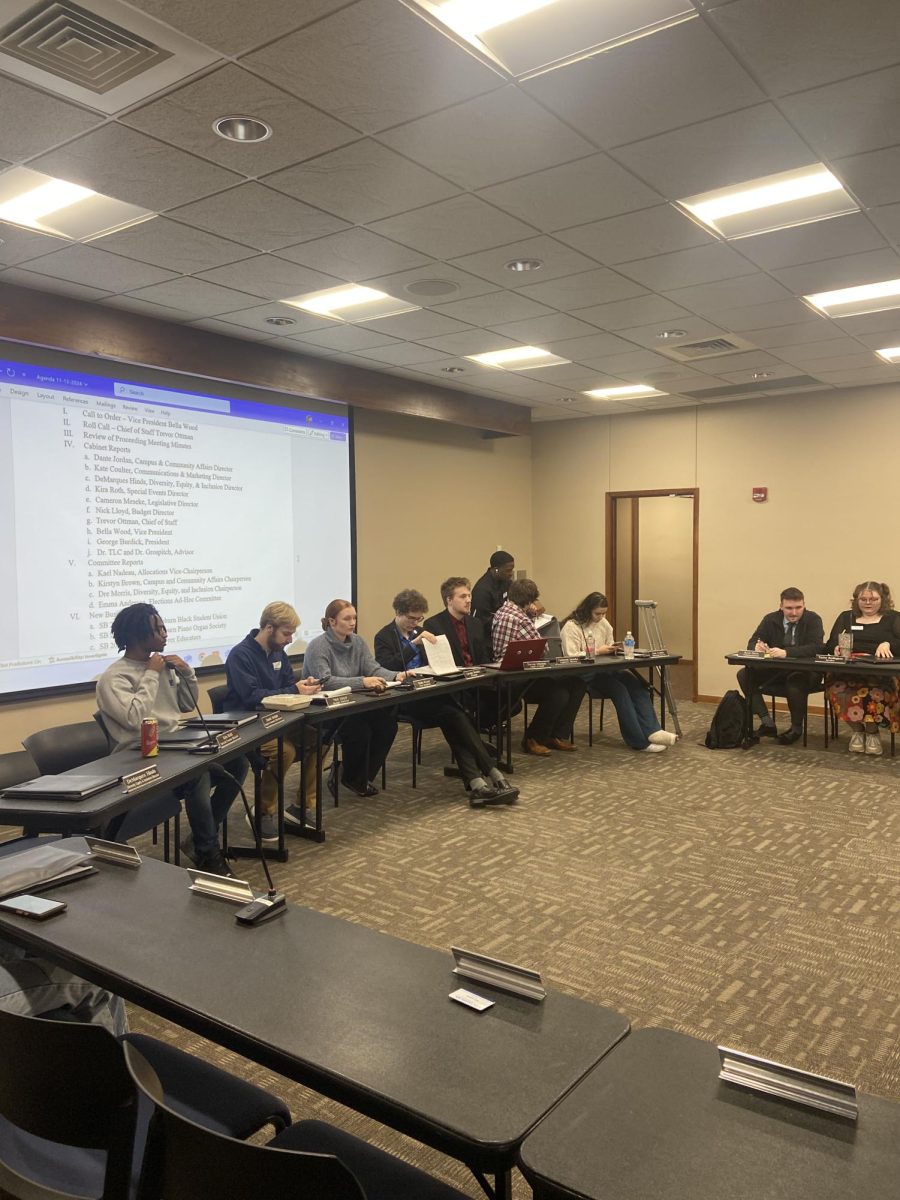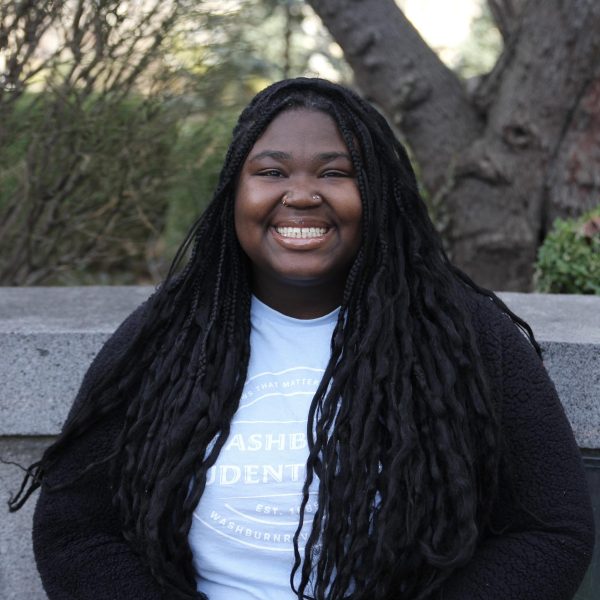School is back in session and that means Washburn Student Government Association is resuming as well. For their first meeting of the spring 2024 semester, multiple positions were filled and a budget request caused a commotion in the room.
Cabinet members shared updates on what they have been working on.
JoAnna Marks, diversity equity and inclusion director, has received shelves for a food pantry and stickers. Marks is also working on translating the Washburn webpage with Alan Bearman, vice president strategic enrollment management.
“I’m going to be having a meeting with Dr. Bearman about translating the webpage; they are still in the process of updating it. So we don’t know exactly what that will look like,” Marks said.
Ryan Durst, legislative director, spoke about Higher Education Day on Feb. 14 at the capitol. He encouraged WSGA members to fill out the form and let members know about tabling and meeting with senators to have a day at the capitol.
“If you don’t know much about Higher Education Day, it’s basically a day that we go to at the capitol to talk about the importance of higher education and the importance to you and to be able to make that connection with students and senators and representatives and be able to talk to them face to face,” Durst said.
Antonio Martinez, president of WSGA, is restarting an old tradition of inviting students from Wichita State University, Kansas University, Emporia State University and Fort Hays State University student government associations to visit Washburn University the night before Higher Education Day. Martinez encouraged WSGA members to engage in this opportunity and speak to other institutions’ students.
“Sometimes interact[ing] with the other people from other institutions, we hope it’s a really good opportunity to get involved,” Martinez said.
Teresa Clounch, associate vice president of student life, was present at the meeting and reminded students to take care of themselves during these winter months.
“I’m looking forward to working with everyone and just as a reminder, make sure to take care of yourselves. At least remind students to rest, hydrate and repeat in the winter months. It’s important that you stay hydrated and that you have a successful semester and I look forward to working with you,” Clounch said.
Martinez swore in two new senators, Luiz Alcantara and Elvia Nino-Elliot.
Clounch swore in two new cabinet members, Liz Duvall will now be campus & community affairs director and Kate Coulter will be communications & marketing director.
Each new member left the public form seating during the meeting and sat in their new position spots.
Katie Woltje, chairperson, announced there were two funding budget requests and one grant. One of the funding requests received an unfavorable status from the committee.
“We had two funding requests and one grant, we bill 72 and 73 favorable status and we bill 74 unfavorable status and I mutually support the findings of the allocations committee,” Woltje said.
Blake Masters requested a $1000 Student Development Grant for the MTNA 2024 National Conference.
Gracie Postman came as a speaker for WU Women in STEM and requested $150 for their beginning of the semester meeting Feb. 1.
Roni Simeon came as a speaker for the Blue Diamonds and requested $1000 for uniform reimbursement.
Masters and postman requests were passed and Simeon’s request was denied by the allocations committee.
Simeon’s request for uniform reimbursement did not follow several rules of what a uniform budget request would be. Woltje believed this funding request was unfavorable because the Blue Diamonds uniforms did not follow WSGA policy. Even though Simeon did follow up with help from the budget director in creating the bill, the request was still denied.
“According to our apparel policy, Section 7.4, organizations producing apparel must show a final product to the budget director to ensure that the student activity fee logo is present, and apparel was produced as approved by the allocations committee and this uniform does not have the WSGA logo on it,” Woltje said, “And then as well as it is not an approved vendor which is section 7.7, which all apparel should be purchased from vendors licensed by Washburn University to use the Washburn name and logos according to the university guidelines.”
Simeon explained the seamstress has already started on the uniforms and would not add the Washburn logo until she received some form of payment.
“The logo being on the uniforms has been difficult because she already made them when we didn’t really know what the process would look like,” Simeon said. “I had asked in advance if she could put the logos on to sort of prove that we can make it possible but she said that she won’t do it unless she has some form of payment. So that’s where the issue came into play.”
Mae Atakpa, chairperson, explained there were no vendors the student organization could use to get the uniforms they would need and most majorette teams do not put their school logos on their uniforms.
“I would like to point out the fact that the kind of uniforms they need, we didn’t have a vendor already to use. So that’s why they don’t have an approved vendor. So I feel like this time we should just pass it and we can get it in the future because we’ve never had an organization like this before,” Atakpa said.
Sierra Jetter, health and wellness director, asked whether or not the bill was correctly written since this is a uniform reimbursement and not an apparel-related funding request.
“..it seems like the reasoning why the legislation was given the status that it was, was based off the idea that this was apparel, but it’s not stated as apparel in the legislation. It’s obviously a uniform reimbursement and things of that sort,” Jetter said. “I guess my first question is, is there anything in the financial thing that just discloses something that may be clothing or anything else of that nature.”
George Burdick, budget director, explained how the uniforms being referred to as supplies or equipment did not seem like a strong enough argument for the bill to receive favorable status or be seen as anything other than apparel.
Tiana Smith, senator, suggested categorizing the bill under a different section from the policy and asked whether or not the uniforms were used more than once.
“Section 7.9, sporting club jerseys that are property of the student organization and reused each year are not considered apparel. So would these be something that are reused each year?” Smith said.
Woltje explained how the uniforms are not jerseys and if they continue with their organization more people would join and that would lead to requesting more money for uniforms.
Simeon explained the dancers reuse uniforms and buy their first uniform out of pocket. Since most majorette clothing can be more revealing the second option for their uniform allows them to choose which one to wear for performances.
“We do have basic uniforms that come with registration, we purchase those ourselves. The uniforms that we already have is when you’re selected to perform anywhere though, but they are going to be reused for those who can fit them but if they don’t fit they will wear basic uniforms that we purchase,” Simeon said. “The base uniforms, not everyone is so comfortable with it. It is leotards and just stockings. We do have girls of different sizes and the uniforms that we made, they’re more comfortable with those ones.”
The allocations committee believed the Blue Diamonds’ uniforms did not represent Washburn enough and did not see the request as favorable.
“In committee, we discussed the jerseys team apparel and if you look at all of our other sporting jerseys, Washburn is on everything. These uniforms have Washburn on none of them, it’s just a solid color, a little bit of silver. So that’s where we saw the problem that Washburn isn’t being represented at all and you’re requesting funding from Washburn,” Woltje said.
Raven Petty explained what majorettes at other schools wear and favors supporting the bill because WSGA does not have vendors that could support this organization.
“…with it being a majorettes team and they don’t typically ever have their school’s logo on it, I think this is something Washburn is not used to and they never had a majorettes team before. I do think we should just approve this because we’re not serving their organization specifically, in a way that they need to be served because we don’t have anything for them to go through,” Petty said.
Emma Anderson, senator, suggested tabling the funding request for a couple of weeks while they try to get a policy in effect that benefits the bill. Anderson also asked if they were going to get the seamstress on a vendor so the bill could get passed.
The executives huddled for 15 minutes to discuss the question asked.
“It would be disingenuous if we were to continue and proceed as though we plan on making some legislative changes for the future. So if we were to proceed, thinking that would have made that change as an administration, it would be as though we were giving special treatment to subgroups,” said Tevin Asomah, vice president of WSGA. “So we would like to be able to proceed wholly and act as though we know now.”
Woljte asked Simeon several questions about whether they looked through all the vendors that are Washburn-approved and if the request was made before or after the uniforms were made.
Simeon stated earlier that the seamstress worked on their uniforms before they knew about it and that they did look at all of the vendors before they made a decision to go to a vendor outside of Washburn’s list.
Woljte moved to change the wording of the bill.
“I move to strike the word uniform to jersey,” Woljte said.
Smith asked Burdick if he would be able to contact the university about how to add someone as a verified vendor, which he agreed to.
Marks had one last thing to add and wanted everyone to know it is their responsibility to have accommodations for all organizations and this has not given anyone special treatment.
“I just want to chime in on wording. I do not think this is preferential special treatment or making exceptions for this group. It is on us and the university that we do not have an approved vendor of this sort. And so we need to be accommodating them and getting a culturally appropriate vendor to create this type of uniform. And so that’s what we’re asking. We’re not saying that we will be making future exceptions for any group to go to any vendor, but this is a specific type of cultural vendor that was needed,” Marks said.
Alcantara asked for clarifications on the bylaws and if the new wording meant this bill does not have to follow any of the apparel requirements.
“Yes, so section 7.9., sporting club jerseys that are property of the student organization and reused each year are not to be considered apparel. So they don’t follow any of the requirements,” Burdick said.
After a forty five minute discussion, WSGA voted in favor of the bill. The Blue Diamonds’ $1000 uniform reimbursement was approved.
Edited by Morgan Albrecht and Jeremy Ford




























